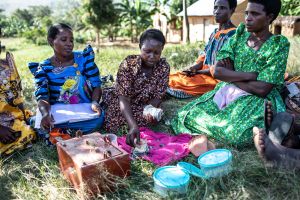Amid shifts towards inclusive agricultural development, the Center for Global Food and Agriculture offers policy recommendations for further US government action.
Reflecting both the development consensus and the challenges of transformational reform, USAID Administrator Samantha Power announced an ambitious new focus on inclusive development for the agency in 2021. Her announcement followed the publication of a draft policy on local capacity development, which provides a framework for shifting overall organizational approaches to development. The policy helps establish an agencywide understanding of what locally led development means and a unified system for building on local strengths to achieve local goals. Nevertheless, there are substantial and legitimate reasons why inclusive development assistance remains elusive. Recent research from the Brookings Institution provides an excellent summary of the legal and regulatory impediments, including budgetary rigidity, risk mitigation, and the limits of local organizational capacity.
With this policy brief, we aspire to add to the growing conversation about inclusive development through the lens of agriculture and food security. Agricultural development assistance is, at its core, a long-term investment and, as such, is well suited to the coming shifts in policy and funding. USAID’s local capacity development draft policy advocates for beginning with the local system, a critical step that mirrors the food security community’s move toward systems approaches to agriculture.
Recognizing that inclusive agricultural development is a nuanced and multifaceted issue, this brief features four expert perspectives on how to ensure US agriculture and food security assistance reflects not only the priorities of local communities, but also communities’ own metrics of success. The four chapters explore inclusive development through a case study of how to embed trust and flexibility into programs for greater local ownership, the need for women’s leadership, social enterprises’ potential for scalable and locally led systems change, and participatory agricultural research. The brief concludes with policy recommendations to further US government efforts, gleaned from the authors and consultations with more than 20 stakeholders in government, international NGOs, academia, and the advocacy community.
